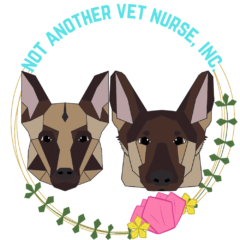How to Know if it’s Time to Leave
This is something that is much easier said than done. Knowing when it’s time to back away from your career in veterinary medicine is a difficult and extremely personal decision. Feeling like we need to be there is something that is deeply ingrained in us as natural caregivers, but it can also be our biggest downfall. Sometimes it is a necessary step for us to process our trauma, grow, and prosper. Whether this means leaving the field entirely and moving on to something fresh and new, or just a change in environment by moving to a different clinic. Sometimes it is what is ultimately best for us and everyone – even including our patients. After all, only healthy vets can help healthy pets- right? And if you are not emotionally, physically, and most of all mentally healthy enough to be fully present in your work then consider that it might be best for you to not be there at all. We are experts at masking our feelings and emotions, carrying on as if nothing is wrong only to then break down on the car ride home and wonder “what’s wrong with me?” Nothing. There is nothing wrong with you and you are not alone. Our work is draining. You are no good to anyone else if you are not okay, fully, 100% okay. As someone who constantly ignored these signs, I urge you to give this a read and truly think about whether you are in the healthiest environment for yourself, and to really be introspective on whether you are doing what is best for you, your coworkers, your clinic, and your clients.

Lack of Empathy-
Is it burnout? It’s important to see if you’re burnt out or possibly suffering from compassion fatigue versus actual lack of empathy. Sometimes the only way to tell is to take a break and see how you feel.
OR
Is it truly gone? True loss of empathy for your team, patients and your pet owners are real. However, this is a significant sign that it is in your best interest to leave the field altogether. This is okay! Caring for others is exhausting. Now it’s time to truly focus on yourself.
Work in any industry can be stressful, but our field is a different breed (pun intended) of stressful. We constantly feel overwhelmed or anxious at every little setback, mistake, misdiagnosis, or problem that arises. However, this may also be a giant, flashing warning sign you’re headed towards burnout or are already there. If you are no longer finding joy, losing interest, lacking passion, and just overall are completely drained of any happiness when it comes to performing your work- then guess what- you’re probably overworked. We often use the phrase “remember why you started”, well if you are feeling this way then now would really be the time to remember why you started. Sometimes this is enough to re-ignite that fire and passion that you initially had when starting your career in vet med, but it is also ok if it isn’t. Also keep in mind our all too close relationship with compassion fatigue. This condition stems from quite literally caring so much for others, sometimes too much, and leads to extreme emotional exhaustion or an inability to continue caring- or lack of empathy. Not only can this be from the constant repeated exposure to emotionally stressful events, but it is also very closely tied with working in a short-staffed environment where patients are not getting sufficient care, performing treatments and/or procedures that are not standard forms of care (especially in shelter/emergency medicine), or euthanizing pets that could be saved if the owners could afford care. Sound familiar? Most if not all of these are probably daily occurrences for you and if not, consider yourself one of the lucky ones. All of this over a period can desensitize you so much to where you literally become numb, and there is no longer any empathy left. Not because you are a cold individual- because of the opposite. You’ve given away all the love and emotion you possibly could, and you are programmed to have nothing left. If you are feeling this way, PLEASE speak to a professional, as once someone in our field gets to this point sometimes their mental health has sunk so low that the consequences can be deadly. We implore you to seek out professional care if you are suffering from compassion fatigue to this extent as it can be a dangerous spot to be in alone. Too often, those in Vet Med feel as if they simply change jobs, their signs will go away. While taking time off or decreasing work responsibilities can help resolve burnout, compassion fatigue will follow the person wherever they go if they are not taking steps to prevent it. We wish we could say those memories will leave you, but they will not. They can however get easier to manage by seeking out help and speaking to those who share your experiences. Support is everything and there is hope! Moving on to a new career could be the next best step for you if you are feeling this way, as it can create a new and more optimistic outlook on life. There are plenty of other animal related jobs that are not in clinics, and if you decide you want to stay in a clinic structure there are SO many other clinics out there who would love to have you and provide you with the upmost love and support.
*If you are struggling, please call the National Suicide Hotline at 988 to get help and mental health resources. It is free and confidential.

Consistent Tardiness-
Is there a lot going on in your life? There will come a time after entering this profession that your life needs will change. You will get married, have children, have family changes, etc., all of which require your attention. Sometimes the type of clinic just doesn’t fit your needs and it’s time to find one that does.
OR
Are you miserable? Do you dread going to work? Or even getting up for you’re alarm to get ready for work? Maybe you hit snooze 5 times and leave as late as possible because you just don’t care if you get there on time. Sometimes, the consequences aren’t enough to make you show up on time. This is where you need to evaluate if a profession change will make you happier professionally.
“The Monday blues” are real and it’s normal to feel bummed when the weekend is over and it’s time to get back to the daily grind of work. Just like looking forward to days off or vacation time is normal. However, if you get a pit in your stomach when you arrive to work, have extreme anxiety, or get to the point of being physically shaken up or ill- that is a sign it’s time to leave. There is really no debate in this. If you do not enjoy what you are doing enough to feel content while going into work and are literally dreading clocking in- leave. It’s not a secret that work doesn’t always have to feel fulfilling or fun, but you should feel comfortable, happy, and supported there. Another form of this could be sleeping through your alarm, hitting snooze 10 times making you rush like crazy to make it out of the door to clock in on time. Shocker- this means you’re exhausted. This can be considered a way of your own body almost trying to protect you and attempting to allow you to fully recover to perform your best. However, usually we force ourselves out of bed only to make it to work late and be basically unconscious for the first half of the day because our bodies are entirely fried. Though you’re not tardy because you’re dreading going in or having anxiety about it, your body is in a way dreading it unconsciously by trying to gain more rest to restore itself. Think about it; you spend a huge chunk of your day and your life at work and if your time off is spent dreading your return there then it’s only a matter of time before it starts affecting your physical, emotional, and mental health to the point of detrimental harm. If you start noticing yourself calling out more, consistent tardiness, heightened anxiety before getting to work, even losing sleep because you are literally dreading going back then it’s time to consider whether this is best for you or if you would be happier in a different environment or career altogether.

You are easily agitated-
Are you picking fights with coworkers? A common trait in burnout is being combative with others. We are with our team all day; every day and we can’t argue with our patients, so coworkers become the target of our unhappiness. If this becomes a pattern, we must evaluate if this place is where we are happy.
OR
Are we picking fights with clients? Are you saying things to clients you normally wouldn’t? Are you getting clients complaints for your attitude? A person can only take so much. When we become mentally tapped, we start taking it out on everyone, to include our clients and patients. This is when we need to seek support and possibly a profession where we can feel ourselves again.
This situation can be related to your experiences throughout your career, but it can also be very tightly connected to your work environment. Your knowledge and skills are valuable, but your patients are unlikely to benefit unless your entire practice is delivering quality care and of course- customer service. You must be able to depend on your fellow veterinarians, vet nurses, vet technicians, and support team to provide quality care and relay instructions to owners but you also must rely heavily on yourself and your own personal knowledge. All of this combined with the additional stress of compassion fatigue can be incredibly draining leaving you with nothing left to give. Your fuse is shortened, your patience is tested, along with the fact that you’re probably hungry, tired, and over worked. This can quite literally be a recipe for disaster in our field. It can result not only in improper care of a patient, but it can highly increase your chances of snapping at your coworkers, superiors or worse- your clients. We all know a Karen loves a good argument- don’t give that Karen the satisfaction. If something goes wrong and an argument ensues due to a lack of follow-through by others or support, your license, professional reputation, self-esteem and even the practice itself could be at risk. If your patients aren’t receiving the quality due to tension in the work environment whether it be from your clients or your peers, it may be time to change jobs. You don’t want to lose the privilege of practicing veterinary medicine because you didn’t leave when you should’ve and as a result blew up on someone. Take it from me- by then the damage is done. This one should be a no-brainer, but sometimes we all need someone to tell us it’s okay to leave a toxic job and unfortunately in our field as well, toxicity is all too common. Snide remarks, destructive criticism, and back-biting can drain you mentally, emotionally, and even physically. Please always keep in mind that a toxic environment can even put your patients at risk, and they don’t deserve that as they come to us to get better. Only healthy vets (techs & nurses) can make healthy pets! Occasional work headaches are inevitable, but a toxic or abusive environment should not be tolerated and that includes your actions as well towards your peers. If you work in an environment where you are being berated, abused, or second-guessed and you have gone through all the necessary steps to fix this to no avail, then it’s time to consider a new work environment or a shift in careers Life is too short to work in a hostile environment. Working as a veterinary professional is already a challenging job. Don’t make your professional stresses even worse by becoming trapped in a job that’s a bad fit causing you to lash out at others. While you might be hesitant to change jobs out of a sense of loyalty to your employer, coworkers, and clients, it’s important to also remain loyal to yourself as well. If you feel yourself doing this, then take the time to make the first steps to find more happiness in your career. Your investments of time, effort, commitment, and caring will not be forgotten and this also means that you deserve to be happy and maintain a positive outlook on life. You are not a Chelydra serpentina, so no more snapping!

Substance Abuse-
Are we having a drink after every shift? Alcohol is a depressant. Which means when we feel overwhelmed, we reach to alcohol to numb the pain. However, that doesn’t get rid of the cause which may in fact be your clinic.
OR
Are we reaching for the bottle? Substance abuse is a huge problem in this profession. It can be the cause of some suicides due to means of access. If you’re drinking an entire bottle or reaching for the prescription drugs, then you need to seek help.
Everyone has their own way of coping with some the trauma we experience daily. There are those crazy people that go to the gym after a hard day to decompress, others meditate or do yoga. But let’s be honest, most veterinary professionals are on some form of medication(s) or they drown themselves in the bottle or worse fall down the slippery slope of drug abuse. This is a pattern that is all too common in our field and it’s something that most prefer to remain tight lipped about so not to worry their peers or have anyone know that they are not coping well with their work experiences. To put this into perspective, Dr. Jon Geller and Dr. Lori Kogan of Colorado State University did a survey of veterinarians in 2015. The results were staggering and showed that “72% of those surveyed said they had worked with a veterinary colleague whom they suspected of having a drug problem. More than 40% said they knew of 2 or more people that fit the description. 68% said drug abuse was at least as big a problem in veterinary medicine as it was in the general population.”[1] This is a huge issue in our industry, but it can be especially dangerous not just to those experiencing the addiction but the patients they’re treating as this can cause a serious lack of judgement and become a deadly situation putting the reputation of the practice and all of it’s staff (possibly including you) in question. If you feel one of your peers is suffering from addiction, we urge you to speak with them and be an ally not an enemy. Speak to them as you would any other friend, offer help- not judgement- because if anyone could possibly know even a fraction of what they’re going through, it’s going to be also in their field. Keep in mind that 1 in 3 individuals in Vet Med have experienced suicidal ideation, put that in line with very easy access to highly controlled medications- this could have deadly repercussions. Do not lose a friend because you were too afraid to offend them by bringing up the conversation and offering them help because it may be too little too late. If you yourself are suffering from addiction, PLEASE seek help. There is no doubt that you are a highly skilled and valued member of our Vet Med family, and we need you with us. Though it can seem daunting and/or embarrassing, please know that we love you and desperately want you here with us. Do not be afraid to ask for help! We all need it at some point and there is no one who will better understand than someone who is in the trenches with you every day. If you truly feel as though you do not have the support from your peers, and that you would be much better off without the stress that comes with Vet Med, I cannot say this loud enough, please leave and find your happiness- even if it means leaving the animals. If you need to take time to heal before stepping back into the professional world- do it. Take all the time you need. Take advantage of every resource provided, see your loved ones, go on a vacation- do whatever, just do not continue down the path of destruction. Once again, we as in not just your veterinary peers but we as a society cannot afford to keep losing such wonderful people.
*If you or someone you know is suffering from substance abuse, please call the National Helpline at 1-800-662-4357 to get help (Substance Abuse and Mental Health Services Administration). It is free and confidential.

Frequent Mistakes-
Are you having one here and there? Mistakes. We all make them. It’s how we learn and grow. However, they can be a sign of poor clinic management- being overworked and understaffed.
OR
Are you having multiple? Mistakes are normal. However, if you’re having multiple even with good clinic management, it might be time to reevaluate your professional goals. You might be checked out and in your best interest to find something that better suites your mental needs.
Distractions whether it be physical or emotional are completely normal and acceptable to a degree. Maybe you’re late on bills, are struggling with your partner or are having issues with your own physical wellbeing. This is understandable and I can assure you you’re not the only one. Mistakes happen and typically they can always be easily rectified. However, it’s the frequency of these mistakes that can truly show the state of your work competency. If you go from making a few mistakes here and there to making them constantly, it’s time to look at your work environment, home life and mental health as these are often the causes of our main distractions not only professionally but also personally. Becoming distant and emotionally detached can make these worse and can be disastrous to your career. Before this happens, you may want to weigh out your options and leave your current job before you cause too much damage that can cause you to be terminated leaving a bad relationship with your previous employer. Though you are always given the option to provide your potential new employer with the ability to connect with your previous one, this is not mandatory. You can make it so they do not have the right to contact them regarding your previous role and you do not have to disclose the reasons for this. It cannot legally hinder your potential employment with a new company; however, some companies often question the reasons for this when looking through potential candidates. Needless to say, if you are given the out to leave before you sour the relationship, do it as it makes the next part of your professional career all the easier with much less question as to “why you left”. You need to be in a positive, supportive, and nurturing enough environment to where you are completely engaged in your work without any sort of distractions in order to create a decrease in these mistakes. If you do have distractions that you can easily eliminate it’s always a good idea to do so. Whether this is paying off a bill instead of buying something non-essential you’ve been eyeing, maybe not calling that super needy person back, moving out of a toxic living environment if you have the ability to do so, or cutting off a toxic family member so you can focus on your career, take it from someone who has been there and didn’t- do it. Take action and take your life and your career back!

It goes without saying that an unhealthy work environment has implications for your professional and personal happiness and is a sign that you should possibly considering handing in your resignation. Examples of things that are out of your control could include punitive and controlling management practices, distrust and dishonesty among senior leaders, public shaming and/or harassment of employees and ineffective communication. Symptoms of an unhealthy environment often include high employee turnover, physical symptoms associated with coming to work, employees not speaking honestly for fear of retaliation and more. If you find yourself in an environment like this, take a deep look at your situations, weigh out your options, seek help if needed, research other possible coping strategies and implement them while you look for a new job. If you’re feeling overwhelmed and are experiencing any of this, we can however reassure you of a few things: the animals will be ok, there is assistance if you decide you need it, you are not alone in this fight, you are worthy, and there are always other jobs out there. Whether you decide to stay in the field, or move into a completely different career path, please be sure you’re taking care of yourself don’t be afraid to seek greener grass.
Written by Robyn Delatorre
*Stock images used
[1] Today’s Vet Nurse, Substance Abuse in Veterinary Medicine: What to do? (todaysveterinarynurse.com); Mary L. Berg BS, RVT, RLATG, VTS (Dentistry), November 19, 2019 | Issue: Winter 2020
